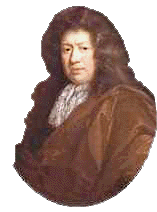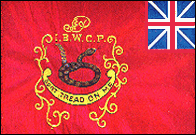


19-25 September 2004
hemlock@hellokitty.com
The tiny Protestant church in the old town of Zab El Kebir attracts some 40 or so people to its weekly service. After the Australian pastor dispenses efficiently with the worshiping, the congregation turns to their main purpose for attending – a weekly social occasion for the local Anglo community. As we sit in the pews, someone brings coffee round. Cousin Jay Madison Hemlock, English teacher extraordinaire, points to everyone in turn. “That fat guy’s a Canadian working for the UN. That family’s British – he’s a diplomat. That one’s Norwegian, working for some foreign aid thing. That lot are American. See the guy who’s just spilt milk on his wife? – he’s CIA. The blonde girls are Peace Corps. The black woman – never seen her before. That really charming-looking family are Dutch. He’s in fertilizers or something. She’s a pain in the ass – always trying to convert the locals. The brown-haired woman is a doctor – Polish. Doesn’t even speak English. She’s only here because there are no single guys at the Catholic church.”
In the evening, the blonde girls and a couple of local teachers come over to Jay’s place for unspeakably bad vin du pays and some far better quality hashish. Jay starts rummaging through his box of old music and books. “Remember this?” he asks, tossing me a cassette with an extremely worn label. We play it. Peter, Paul and Mary. America. Jackson Browne. Crosby, Stills, Nash and Young. “I reckon that tape dates to the late 1970s,” he says. “It’s probably been through seven or eight English teachers here.” I pull it out of the player, hold it up reverently and – as everyone watches in awe – address him with the utmost solemnity. “You never actually own this cassette,” I tell him. “You merely look after it for the next generation.” Five silent seconds pass before one of the blonds girls shrieks with laughter and sprays the room with revolting Les Coteaux de l'Atlas Rouge.
Mon, 20 Sep
My last farewell from Zab El Kebir comes onion-breathed from the brown-uniformed, black-moustached immigration officer at the airport. At London Heathrow, I am greeted by an Indian girl with a punk hairstyle, pink lipstick, a stud in her nose, a faded denim jacket and a grey T-shirt. Hanging from a thin metal chain around her neck is a rectangle of dark blue plastic, embossed in gold with the coat of arms of the Queen. She hands me my passport and waves me on with a smile.
A few hours west by bus, and I step into the damp chill of a small-town English summer. Outside the county hall, I get a taxi. We drive past obese, tattooed women with rings on their thumbs, buying their baked beans and frozen burgers, then into a neighbourhood of rusted satellite dishes and pick-ups. I notice a horse trailer in a field festooned with pro-hunting posters and the slogan ‘Blair out!’. Several miles down winding, manure-scented lanes and I am at Stonegallows Hall. Finding the door open, I walk in expecting cries of joy at this unannounced visit. My mother is hard at work in the warm wood and brass surrounds of the kitchen. “Ah, there you are,” she says, oblivious of the fact that this is the first time I have set foot in this country for over a year. “Hand me those onions, will you?” Greetings over, I ask what's for dinner. She lifts the lid off a boiling cauldron. “A surfeit of lampreys,” she announces with great ceremony, “with lashings of ginger beer.” I peer into the malevolent stew and look up at the gallon-size enamelled jar with the cork bung in the top. Glancing at my watch, I calculate that even at 70 miles per hour, I would miss this evening's Hong Kong flights by at least 90 minutes. There is only one thing for it. I fall to the stone-tiled floor and feign death

In his study, surrounded by books, Civil War weaponry and a stuffed dodo in a glass case, my father is writing his memoirs. Volume 1 dealt with the arrival of the D’Hemlocke family with William, Duke of Normandy. Volume 2 covered the clan’s progress through the Reformation. In Volume 3, as liberty clashed with tyranny, we hunted the odd witch but otherwise kept our heads down, emerging occasionally to salvage surplus materiel for future generations to hang from the walls. By the end of Volume 4, Hemlocks had crossed oceans to appropriate fertile land from heathen savages too clueless to put it to productive use, but creeping socialism at home was starting to rob the family of its English acres. The scene thus set, my father was finally born in Volume 5. He is currently halfway through Volume 11, battling the Chrysanthemum Throne. It is early 1946. After borrowing the personal aircraft of RAF Changi’s station commander for a joyride, he has been demoted – reduced to kicking bags of rice out of Dakotas for starving Malay villages, isolated by skirmishes between allied forces and Japanese units refusing to believe the war is over. Looking at his manuscript, I query whether it is suitable to refer to the recalcitrant enemy as ‘nips’. He looks at me scornfully. “Well, I can hardly use the phrase ‘little yellow bastards’ in print can I? This is a respectable book, you idiot!”

Dazed and exhausted by an email from David Webb on Hong Kong’s proportional representation system, I slump in front of the television. To my horror, I find that the BBC is becoming even more warped than the closed party-list, largest-remainder seat allocation method. I am watching the Athens Paralympics, in which people with missing limbs compete in running, swimming and other physical tasks, which they are tragically and obviously incapable of performing especially well. If it is an attempt to show that the handicapped are as good as anyone else, it succeeds only in proving the opposite. Why not pit them against the able-bodied at quizzes, crosswords, chess or poker – let them win on a level playing field? Watching incredulously, my mother recalls the days when deformed people were cruelly exhibited at fairs. What, she wonders, is the difference? “You don’t have to pay to watch this,” growls my father, reaching for the remote control, “and it’s less interesting.”
In search of simple, natural wholesomeness, we take the old Range Rover up into the hills – the grey rolling moorland where I learnt so many early lessons in life, like don’t eat sheep droppings. And where the horses and hounds of the Nether Wallop hunt would chase foxes – back when it was legal. Strolling among the gorse and the ferns in the stiff, damp breeze, we take it in turns with the binoculars to watch a herd of deer running alongside a plantation of trees across the valley. A calming hour later, as we drive through the tiny hamlet of Over Wallop, my father suddenly slows down. “What the hell…” he mutters. It is a strange sight. Sitting on a stone wall opposite the village church are three coffee-coloured men with black beards, wearing thick dark scarves over their heads, white jackets and baggy trousers,. One of them has a hunting rifle slung over his shoulder. In an adjacent driveway, two similarly dark women in bright pink and sky blue robes are squatting, rolling something up in white plastic sheeting. “They must be new,” remarks my mother. With a sigh of disbelief, my father pulls in outside the village store and post office.
Behind the shop counter, old Mrs Haywain curtsies slightly, as her ancestors have to ours for centuries, and explains all. “Refugees, Mr ‘emlock” she says. “Asylum seekers. Somalians, apparently – dunno where from. The Government’s put ‘em up in the old schoolhouse.” She waves a wad of food stamps. “Thank God for ‘em, I say. I needs the business.” Glancing nervously over boxes of produce out of the window, she lowers her voice. “They’s, um… useful suppliers, too,” she says, pointing at a large freezer cabinet. My father strolls over, lifts the lid and inspects some large white bundles. “Venison,” whispers Mrs Haywain. “Fancy a leg?”
